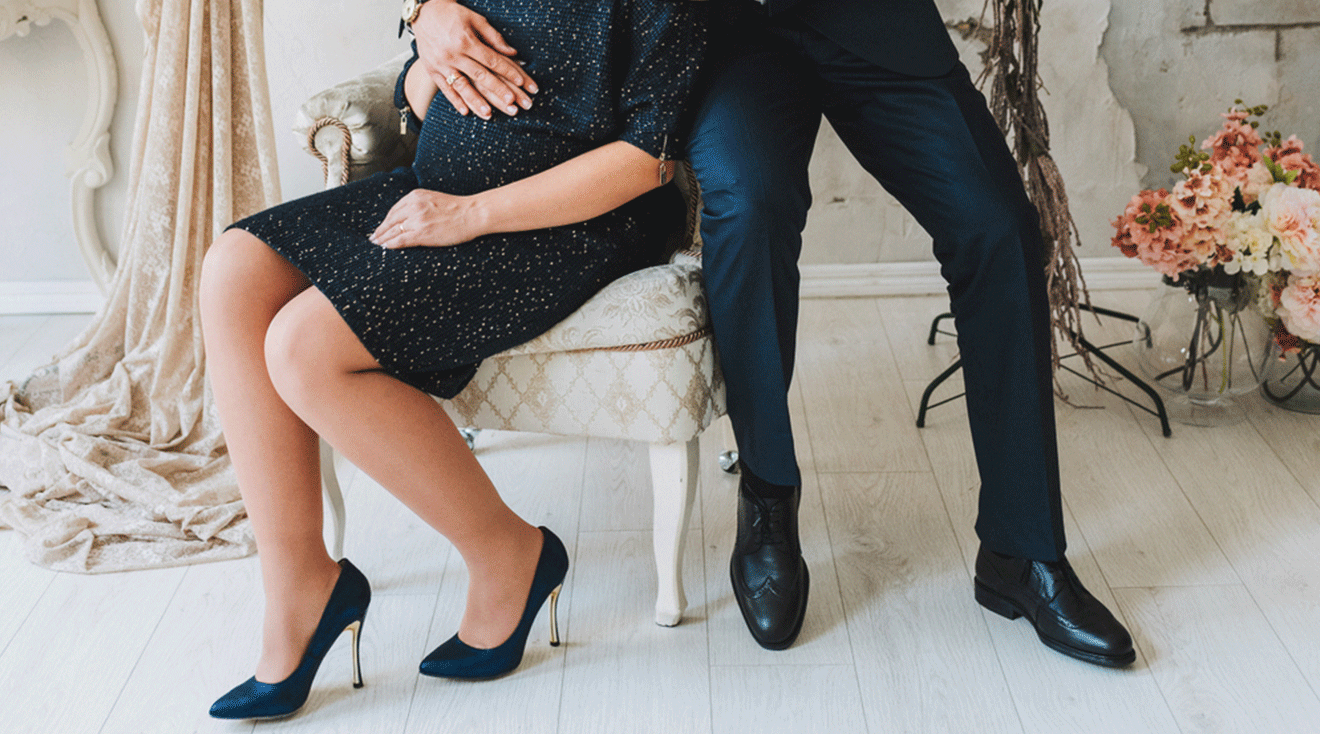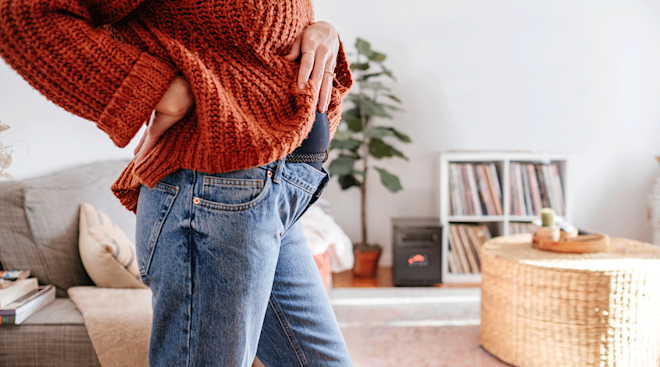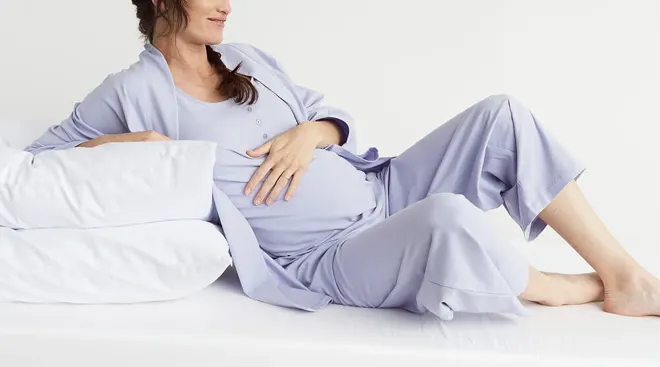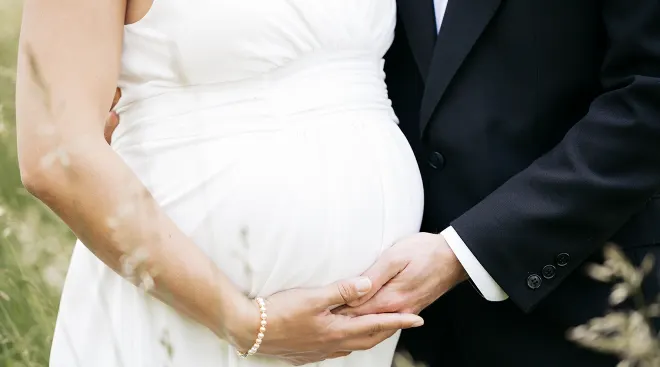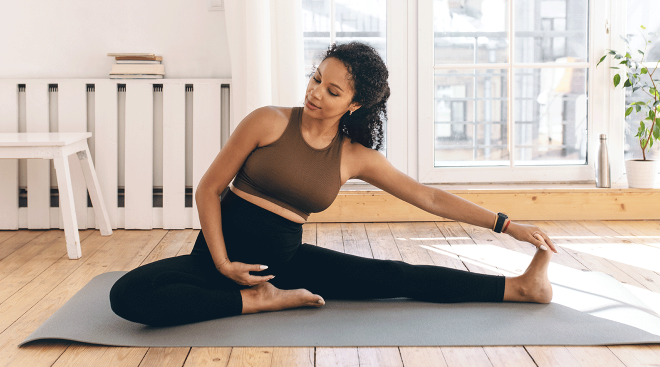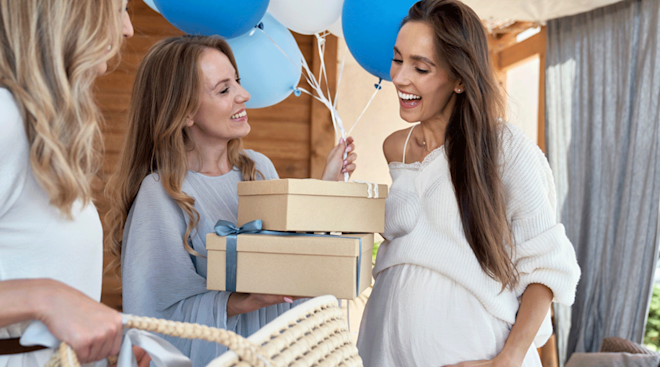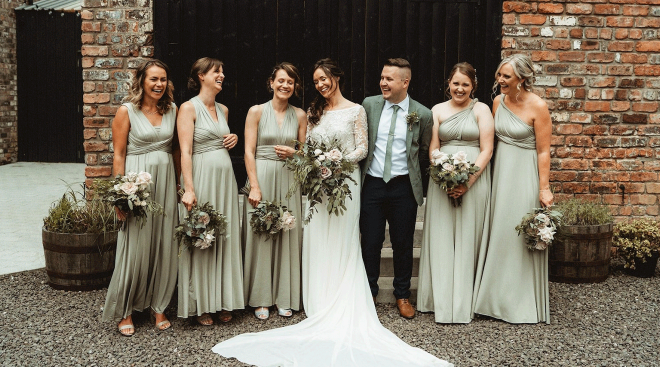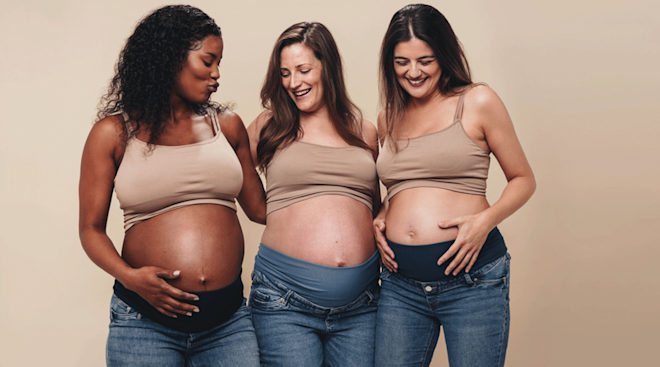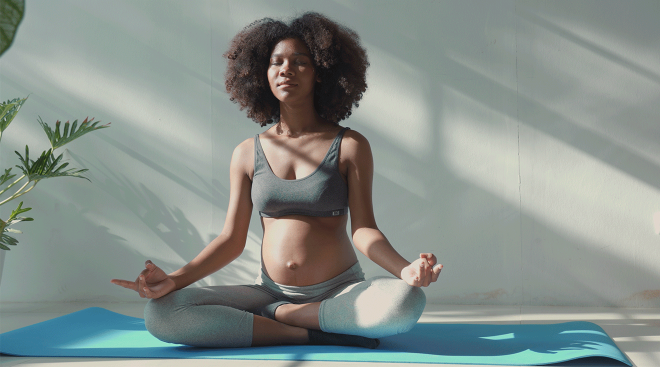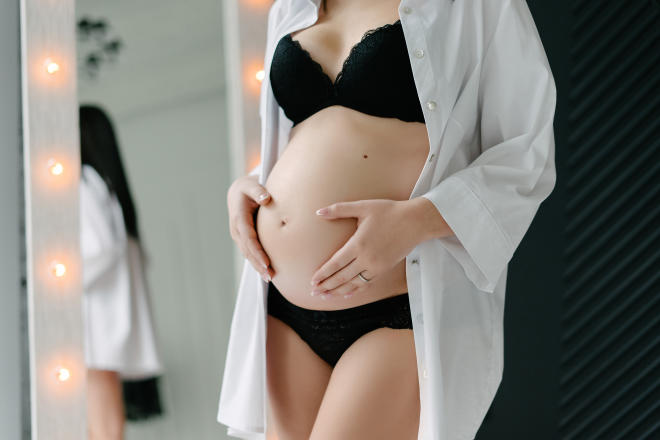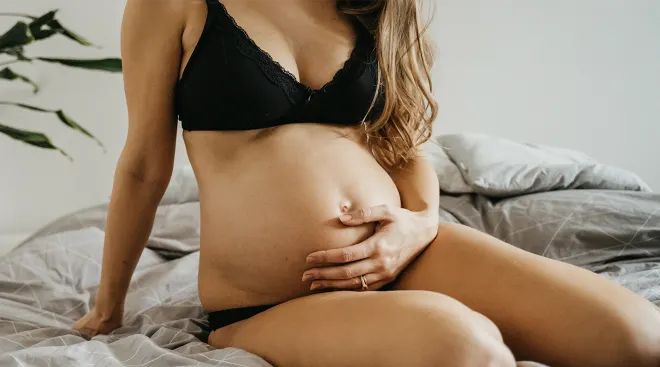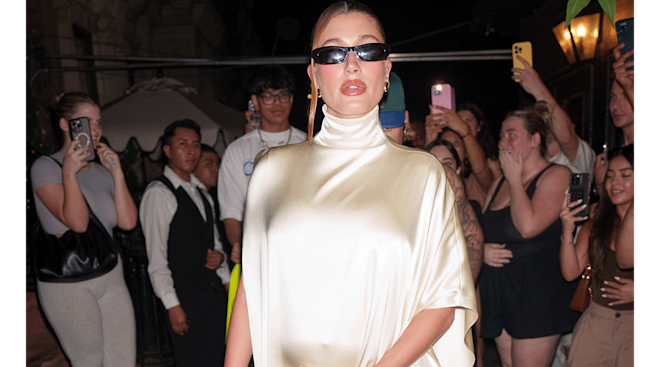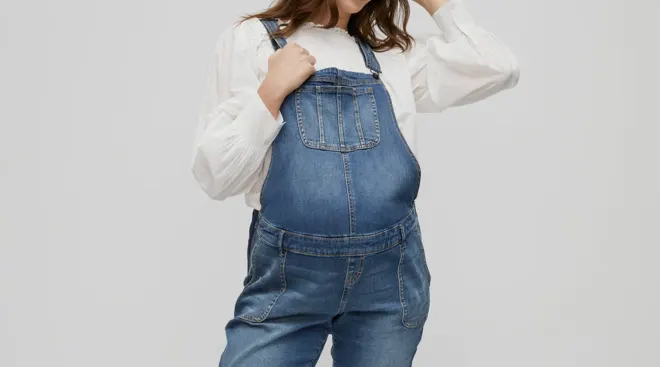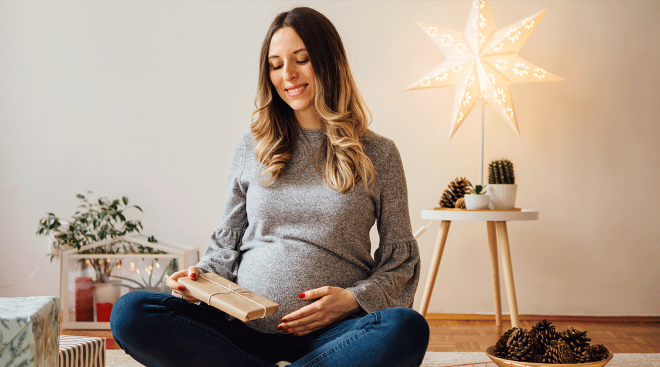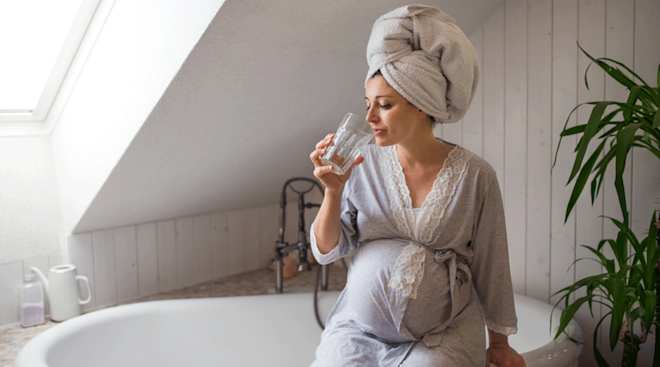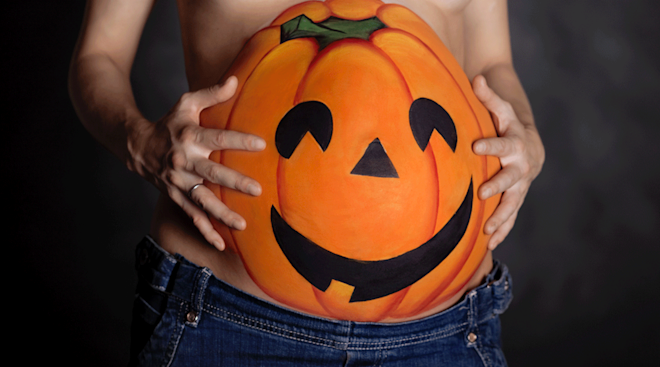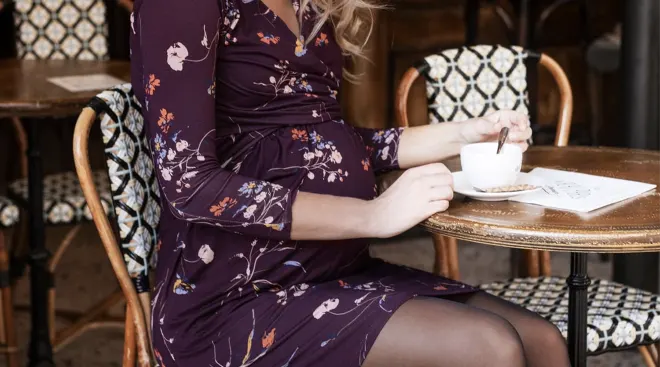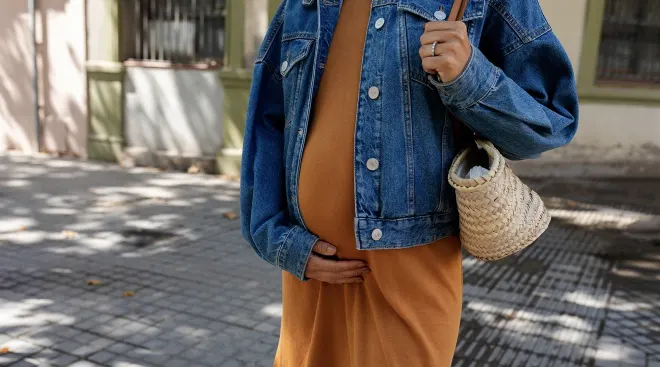Can You Wear High Heels While Pregnant?
“You’re brave,” the ultrasound technician said when I climbed onto the examination table for my 20-week ultrasound. But she wasn’t commenting on my agility, she was marveling at my footwear.
They were simple enough, I thought. A cute pointed toe with a slight ruche at the calf and a very sensible block heel (it was 2020, by the way). But her words filled me with doubt and made me wonder: Do other women wear high heels while pregnant?
While celebrities like Margot Robbie and Jennifer Lawrence prove heels and pregnancy can look great paired together (at least for a few red carpet snaps), not all experts agree they should be worn throughout those nine+ months. Instead, they say wearing heels during pregnancy could add pressure to your feet, throw you off balance and increase your chance of a fall. But don’t put away your pumps just yet. It’s also very much a personal choice.
If you want to know if wearing high heels is right for you and your bump, we’ve got you covered. Read on to find out more.
The short answer is “probably.” But, even if your heels feel like a second skin, you’ll need to proceed with caution.
Nelya Lobkova, DPM, a podiatrist and owner of Step Up Footcare in New York City, says that there are a number of new factors to consider before breaking out your Louboutins. “Pregnant women need to work harder to stabilize their core and maintain a sense of balance while standing, walking or doing any physical activity,’ she explains. “Think about the balance needed to stay upright with a pair of high heels and how much harder it’ll be for a pregnant woman!”
This doesn’t necessarily mean you need to retire your heels altogether. Lobkova says that, ultimately, it’s your decision to make. ”If you do wear heels, use caution, especially on stairs and uneven ground,” she advises.
As you approach your due date, you’re likely to feel bigger, heavier and more tired (and, honestly, a little generally fed up). To that end, the timing of your pregnancy is important, says Megan Bernstein, MD, a clinical professor of obstetrics and gynecology at the David Geffen School of Medicine at the University of California Los Angeles. “High-heeled shoes are probably safe to wear in the early months of pregnancy, but mid-second trimester (20-24 weeks) on, I’d caution patients that wearing high heels can become significantly more uncomfortable and have some potential physical risks,” she says.
For pregnant mom-of-one Julie Smith, in Michigan, these aren’t risks she’s prepared to take: “I have sworn heels off completely, even wedges,” she proclaims. Julie attempted to wear heels for a special occasion during her first pregnancy but since decided against them. ”As soon as they were on my feet, I couldn’t wait to take them off. I didn’t even stand up, I just sat on the couch, and looked at how swollen my feet looked. After about 30 seconds, I took off my heels and put on my slip-ons.”
For some pregnant people, low, comfortable shoes seem like a no-brainer, especially if they’re also chasing other children around. But, if you’re still on the fence, here’s what you need to know about the potential risks.
“Although heels won’t affect the uterus or growing baby, they certainly can have a physical impact,” Bernstein says. “Swelling in the feet and lower legs, loosening of ligaments and pressure on nerves all can cause high heels to become very uncomfortable. High-heeled shoes can also worsen leg muscle cramps or varicose veins.”
Additionally, “pregnant women have a higher risk of falling due to changes in balance,.” says Bernstein. A 2022 study even suggests the rate of falls during pregnancy is similar to that of women over 65.
“Heeled shoes shift your center of gravity forward, which may exacerbate strain on the back, pelvis and hips,” Bernstein says, adding that balance can be further compromised in pregnancy when the growing uterus is already pulling the lower spine forward. ”As a result, pregnant people may feel more imbalance and have a higher risk of falling and causing trauma to the abdomen and uterus, especially if walking on uneven surfaces.”
Whether you’re stepping out in heels or flats or something in between, safety and style can still be paired together. In fact, there are great options for all social occasions, health conditions and comfort levels—no matter how pregnant you are.
A good benchmark is to follow advice from the American College of Obstetricians and Gynecologists (ACOG). They suggest opting for low-heeled, but not flat shoes, with decent arch support, like walking or athletic shoes.
That said, for some people—like those who suffer from plantar fasciitis or bone spurs—a bit of a heel might actually help you out. ”If there’s arch or heel pain (plantar fasciitis or bone spurs in the heel), a heel height of one inch or higher may actually be recommended because the fascia/arch is relaxed when the heel bone is raised,” Lobkova says. “Flat, uncushioned shoes are typically worse for this condition.”
Your body is experiencing all sorts of changes in pregnancy—and feet are no exception. “Wear comfortable shoes with a supportive arch, cushion at the ball of the foot and heel, and don’t be hesitant to size-up if you need to. This happens all the time,” Lobkova says.
If you want to rock a pair of heels on occasion during pregnancy, there are steps you can take to make sure you’re doing so in a safe manner.
Liz Teich, personal stylist, creator of The New York Stylist and mom-of-two has personal and professional experience with heels and pregnancy. “I wore heels (on occasion) while pregnant, so I can attest that it’s doable,” she says.
“If you choose to wear heels, you have to make sure they’re quality, comfortable and sturdy enough that you won’t have an accident. If they have unfinished soles, you may want to bring them to a cobbler to reinforce with rubber to help prevent slipping and shock absorption.”
Here, some more tips to consider:
- Look for pumps that are under 3 inches with a platform under the ball of the foot. The platform acts as a shock absorber to decrease the stress on the ball of the foot which can cause pain and soreness after you’ve worn them for a while.
- Lobkova says to consider a heel with a strap around the ankle or add a strap to your current heels. The strap provides extra stability in the ankle as well as the awareness that the ankle is supported allowing you to wear heels for longer and minimize the chance of getting an ankle sprain.
- Chunky heels can be a good option because they provide more heel and ankle stability, notes Lokova.
- If you feel unsteady in any given pair of heels, swap them out with another options.
Whatever footwear you decide, if you notice anything abnormal, such as pain, swelling, numbness, redness or warmth, consult with your healthcare team for advice.
I might have appeared “brave” when I strutted into the sonographer’s room in my heeled boots years ago, but back then I didn’t think anything of it. During my second pregnancy I was far too tired to bother with high heels with the same energy I felt in my first. By the time my daughter was on her way, I’d already adapted my everyday fashion to a more practical aesthetic that matched the adventures of my toddler son. Heels just didn’t seem to make sense to me at that time in my life. Decisions like these are entirely personal.
So whether you’ve got a comfort-first or a fashion-forward approach to footwear, high heels in pregnancy can be worn. You do you—just put safety first!
Plus more from The Bump:
Please note: The Bump and the materials and information it contains are not intended to, and do not constitute, medical or other health advice or diagnosis and should not be used as such. You should always consult with a qualified physician or health professional about your specific circumstances.
Megan Bernstein, MD, is a clinical professor of obstetrics and gynecology at the David Geffen School of Medicine at the University of California Los Angeles. She completed her medical education at UC Irvine School of Medicine.
Nelya Lobkova, DPM, is a podiatrist and owner of Step Up Footcare in New York City. She received her doctorate from the New York College of Podiatric Medicine.
Liz Teich, is a personal stylist and creator of The New York Stylist.
Research Gate, The Influence of a Shoe’s Heel Toe Drop on Gait Parameters During the Third Trimester of Pregnancy
American College of Obstetricians and Gynecologists (ACOG), Back Pain During Pregnancy
Learn how we ensure the accuracy of our content through our editorial and medical review process.
Navigate forward to interact with the calendar and select a date. Press the question mark key to get the keyboard shortcuts for changing dates.
































